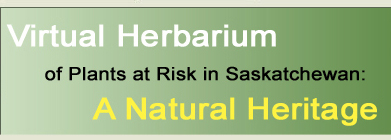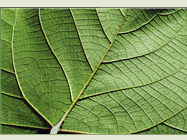
|

|

|

|

|

|

|
|
|
|
|
|
| Boltonia asteroides var. recognita (Fern. & Grisc.) Cronq. | Species Image Gallery (opens in a new window) |
||||||||||||
| TAXONOMY | |||||||||||||
| Family: | Asteraceae or Compositae | ||||||||||||
| Genus: | Boltonia | ||||||||||||
| Species Synonyms: | Boltonia latisquama var. microcephala
Fern. & Grisc. Boltonia latisquama var. occidentalis Gray Boltonia latisquama var. recognita Fern. & Grisc. Boltonia recognita (Fern. & Grisc.) G.N. Jones. |
||||||||||||
| Common Names: | aster-like boltonia white doll’s daisy |
||||||||||||
| DISTRIBUTION | |||||||||||||
| Canada: | southern Saskatchewan – southern Manitoba | ||||||||||||
| Saskatchewan: | southern Saskatchewan; Moose Jaw Creek, Long Creek – upper Souris River Valleys, Moose Jaw | ||||||||||||
| Ecoregion: | Mixed Grassland, Moist Mixed Grassland | ||||||||||||
| HABITAT | |||||||||||||
| Saskatchewan: | sloughs and ditches | ||||||||||||
| Associated Species: | awned sedge, brook cinquefoil, cockspur grass, field dock, golden tickseed, narrowleaf dock, Norwegian cinquefoil, western wheatgrass, white panicle aster, wild mint | ||||||||||||
| RARITY STATUS | |||||||||||||
| Provincial
Status According to Harms (2003): |
Threatened |
||||||||||||
| Nature Conservancy Status: | G5T3T5 S2 |
||||||||||||
| Saskatchewan
Species at Risk Status: |
None |
||||||||||||
| COSEWIC Status: | None |
||||||||||||
| Aster-like boltonia is threatened because it is regionally restricted in Saskatchewan. Some local populations are small. No immediate threats are known for this species. | |||||||||||||
| SPECIES DESCRIPTION | |||||||||||||
| Height: | to 150 cm | ||||||||||||
| Roots: | rhizome woody | ||||||||||||
| Stems: | much branched, woody at base, dark green with straw coloured stripes, hairless | ||||||||||||
| Leaves: | on the stem, alternate, (sub)sessile, many, 5 – 15 cm long, 5 – 20 mm wide, reduced upwards, linear to narrowly lance-shaped, tip tapered to abruptly pointed, hairless, margin entire | ||||||||||||
| Inflorescence: | heads in bracted clusters; bracts on heads in 3 unequal to nearly equal series, the inner surpassing the outer, 6 – 15 mm long, to 1.3 mm broad, linear, tip acute, base straw-coloured, tip green or brown, midvein brown; receptacle naked | ||||||||||||
| Flowers: | ray and disc; ray flowers 20 – 60, 5 – 10 mm long, white to lilac, 2 veins on surface, female, fertile, pappus of minute bristles and 2 – 4 awns; disc flowers yellow, perfect, fertile, style with bumpy appendages | ||||||||||||
| Fruits: | achene 2 – 3 mm long, nearly flat, hard-winged, hairless; pappus of awns, 1 – 2 mm long | ||||||||||||
| |||||||||||||